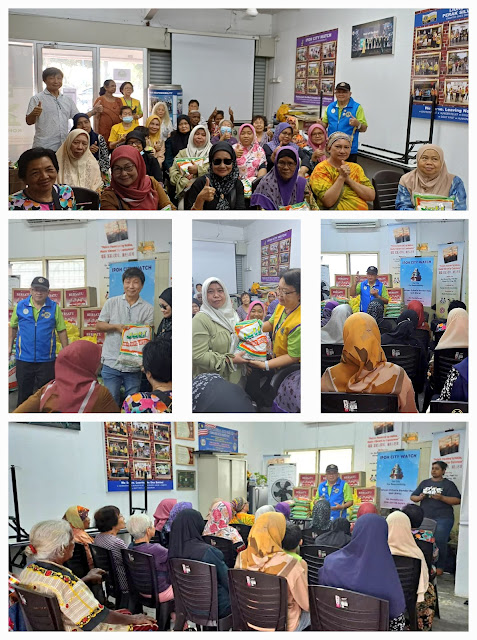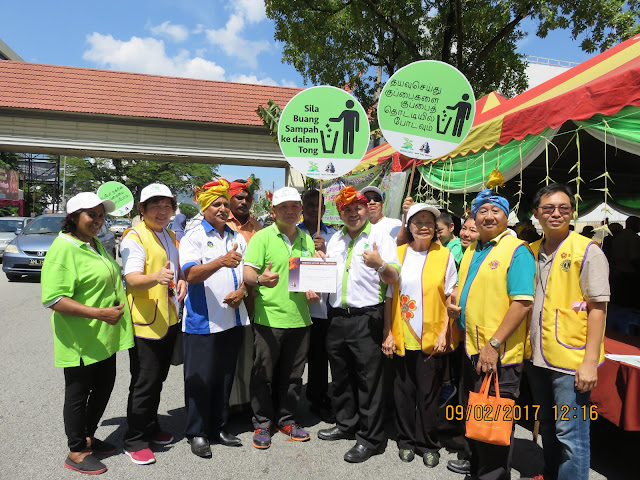6 July 2018 by Dr. Richard Ng
The new Pakatan Harapan
government has been urged to review on the previous BN government’s policy of banning
plastics as announced in April 2016 which is supposed to be enforced effective 1
June 2017.
The U-Turn was announced by
the then Perak MB, Dr. Zambry Abd Kadir about a month before the enforcement of
the policy giving excuses that a thorough study was required before enforcing
the ban. According to him, we
cannot tackle the problems of plastic and polystyrene usage without providing
the correct alternative, as well as creating an environment that leads towards
the ban.
In April 2016, he announced that the total ban
on plastic bags and polystyrene containers would be enforced in stages,
starting with state government buildings, cafeterias, and functions to start
using biodegradable containers every Friday from June last year. In the second
stage, the ban was extended from weekly to daily. It was then extended to cover
all municipal councils in the state. The final stage was the ban on polystyrene
and plastic bags throughout the state.
If the government is serious about reducing
carbon footprint and addressing climate change as one of the goals under the
United Nation on Sustainable Development Goals, then the review is imminent.
There are two ways to do it: through enforcement and legislation and education.
In Perak with a population of 2.8 million now,
a total of 200,000 tonnes of garbage is generated each year and of this total about
30% or 65,000 tonnes made up various plastics and polystyrene. Also there are
over 2,000 illegal dumpsites now. As plastics takes years to decompose, the
landfills and illegal dumpsites will keep piling up.
We need not to wait for further studies as states
such as Penang, Selangor, Melaka and Johor have implemented successfully. The
people in these states have adapted to it and are ever willing to cooperate.
However, it must start from the government, the corporate sectors, the traders
and plastic manufacturers.
We still noticed during Hari Raya Open House
hosted by government agencies continued to use disposable polystyrene plastics,
plastic spoons and forks as well as plastic straws. The government must stop
using single use plastic even though it is a cheaper option to help reduce
plastic pollution which is choking our ocean.
Traders must be forced to use plastic
containers which can be recycled instead of polystyrene box even though it cost
more and not a good alternative.
The better option is to educate the public to
bring their own tiffin carrier and mugs when purchasing foods and drinks.
The government must also engage environment
NGOs such as KOHIJAU and Ipoh City Watch which have been actively involved in
educating the public especially students to practice 3R and use recyclable
shopping bags. The community such as senior citizens and single mothers can be
taught on upcycling skills to salvage plastics and turn it into bags and other
products which can be reuse as decorations, flower pots, stationery holders or
even handicrafts.
The enforcement on the banning of plastics can
be carried out by business licensing authority especially the local councils.
Traders who ignore this ruling will have their business license revoked.
During the recent FIFA world cup in Russia
involving Japan, the Japanese fans, players and officers set good examples to
the world by picking up thrash left in the stadium and even cleaned up their
rooms before they leave. This a habit the Japanese government has cultivated in
young Japanese students.
Perak will soon host the 19th SUKMA
Games from 14 to 22 September 2018. This is the best opportunity for Perakians to
showcase our good habit by emulating the Japanese to clean up the venue after
every event held.
The Perak Chairman for Youth and Sports should
look into engaging NGOs and Volunteers to help. Thousands of people will be in
Perak during this game and what better way to show that we are not just only a good
host but a responsible host. Already Perak is famed for its good food. We must
not just display the number medals we receive but also to showcase that we are
one of the cleanest if not the cleanest state in Malaysia.
So start to form our volunteer brigade and
NGOs, empower them and make our state proud and great again.






















































